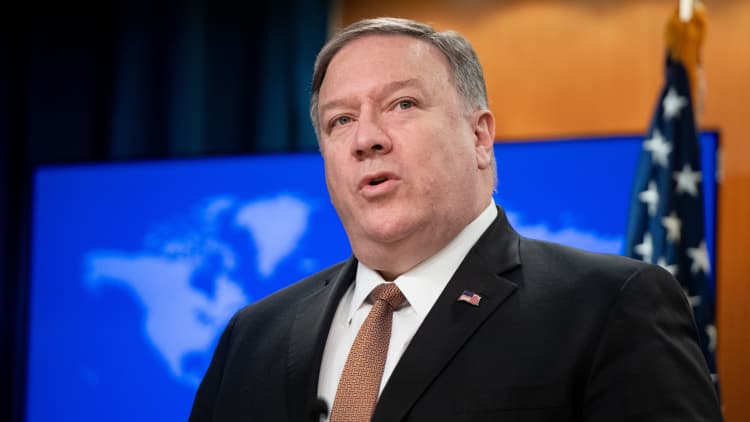The departure of U.S. National Security Advisor John Bolton may mean the White House will soften its stance on North Korea, analysts said Wednesday.
"Bolton's departure would open the US up to taking a softer approach to talks with North Korea," Scott Seaman, Asia director from political risk consultancy Eurasia Group told CNBC via email.
President Donald Trump announced in a tweet Tuesday that he had fired his national security chief. But Bolton disputed that. In his own tweet minutes later, he said he had "offered to resign."
Now that Bolton is gone, "Trump will have limited domestic opposition with regard to his soft stance on North Korea," said Waqas Adenwala, Asia analyst at advisory firm Economist Intelligence Unit.
"We can expect to see some further progress on their talks in the coming weeks, possibly even as soon as the upcoming (UN General Assembly)," he added.
In order for the U.S. to return to the negotiating table, Pyongyang should first take steps to reduce its stockpile of nuclear weapons and related capabilities, said Eurasia's Seaman.
With some sanctions lifted, restarting talks will be a much "more attractive proposition" to North Korean leader Kim Jong Un, he added.
Bolton is a hyper-hawk. He was influential, and his removal will at least temper some administration policies.Cliff Kupchanchairman of Eurasia Group
Seaman said that back in July, Washington had already signaled it may be willing to accept Pyongyang's preferred approach — which is to persuade Kim to freeze his nuclear program rather than immediately dismantling it.
"There is likely no longer anyone close to Trump who vehemently opposes the idea of engaging in the kind of 'reciprocal,' 'phased' approach to negotiations that Pyongyang has said the U.S. must adopt before Pyongyang will resume talks," Seaman said.
With Bolton's departure, "that pathway has been opened even wider, and talks will likely resume in the next month or two," predicted Seaman.
US foreign policy
"Bolton is a hyper-hawk. He was influential, and his removal will at least temper some administration policies," Eurasia Group wrote in a note on Tuesday.
Without Bolton, the U.S. may take a softer stance on Iran, Afghanistan and Venezuela, said the author Cliff Kupchan, chairman of Eurasia. Ultimately, he said, Trump does not believe that foreign ventures serve the U.S. national interest.
In contrast with the North Korea situation, "the policy on Iran is unlikely to see any major radical shift sometime soon," said EIU's Adenwala.
"Bolton and Trump have both been skeptical of Iran although Mr Trump is more open to the idea of meeting Iranian leadership compared to Bolton," said Adenwala.
He added: "Unlike North Korea's Kim, the leaders in Iran too are not very keen to engage with the US which complicates their bilateral relationship."

Looking ahead, Kupchan said that Bolton's successor will determine "the future trajectory of US policy."
He added that Trump will likely appoint "someone who fundamentally shares his views and who will toe the line publicly, even if dissenting in private."
He also said he thinks Trump will become his own security advisor.
"Trump himself will continue to make policy. On issues of war and peace, at least compared to hawkish advisers, that's probably stabilizing," said Kupchan.


